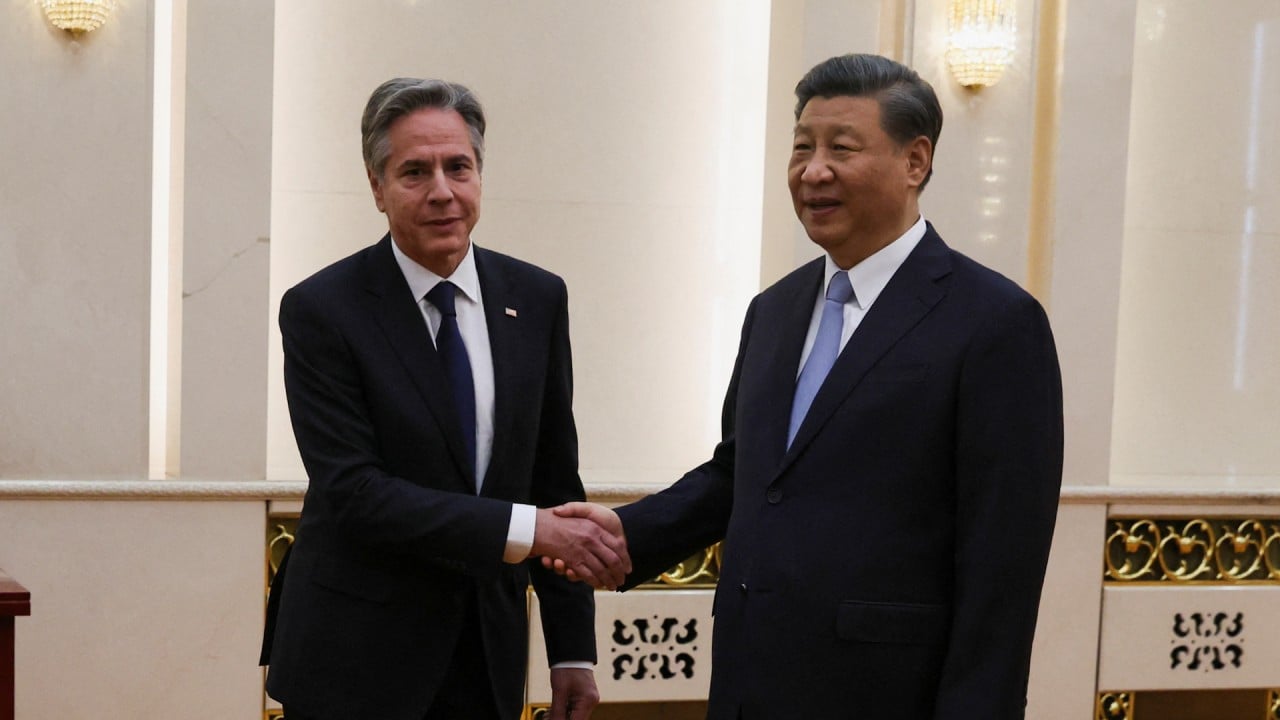Tensions escalated even further in late May when a Chinese fighter jet forced a US reconnaissance plane in international airspace near China to fly through its wake turbulence. Only a couple weeks later, a Chinese warship came within 150 yards (140 metres) of hitting a US destroyer during operations in the Taiwan Strait.
In the wake of these incidents, Defence Minister Li Shangfu reiterated China’s refusal to hold talks with his US counterpart Lloyd Austin. US officials have long been pushing for military-to-military talks, and both ministers were in Singapore at the Shangri-La Dialogue at the time of Li’s statement.
However, there is little expectation that this flurry of meetings in Beijing this month will produce a breakthrough in relations. In an interview with CNN last week, Blinken said he “was very clear” with Chinese officials in Beijing that “we will continue to do and say things that China will not like just as they’re going to continue to do and say things we won’t like”.
It is not hard to see what Blinken meant. The US has tightened the screws on China by imposing a series of sanctions on its ability to acquire semiconductor technology and manufacturing equipment, which one analyst quoted in The New York Times Magazine called “an act of war”. For its part, China has moved to enact export controls on germanium and gallium – key materials for making semiconductors and other electronics – saying the restrictions were necessary “to safeguard national security and interests”.
Still, the fact that the US and China both appear willing to move towards this “new normal” is worthy of applause. This means both sides have agreed to establish a floor and stop the steady erosion of bilateral ties.
When meeting Kissinger, Xi reiterated the positive message he put forward during his meeting with Blinken in June, saying, “China is willing to discuss with the US side the right way for the two countries to get along and promote the steady progress of China-US relations”. Kissinger reportedly responded by saying “The relationship between our two countries is a matter of world peace and the progress of human society.”



